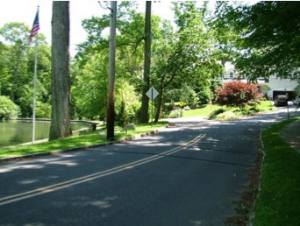NextG Must Demonstrate That Antennas Can't Be Located in Non-Residential Areas First!
- Wednesday, 21 December 2011 15:55
- Last Updated: Wednesday, 21 December 2011 21:03
- Published: Wednesday, 21 December 2011 15:55
- Hits: 4699
 Here is a letter from Edgemont resident Bob Bernstein concerning the NextG application to install cell phone antennas on residential streets in Edgemont. As the author of the ECC legal opinion on the NextG application, I feel it is necessary to correct a number of misconceptions and misstatements in the article about the NextG application that appears on this site.
Here is a letter from Edgemont resident Bob Bernstein concerning the NextG application to install cell phone antennas on residential streets in Edgemont. As the author of the ECC legal opinion on the NextG application, I feel it is necessary to correct a number of misconceptions and misstatements in the article about the NextG application that appears on this site.
First, while Federal law does not allow municipalities to bar cell phone antennas solely on health grounds, Federal law has for years balanced the rights of residents concerned about health issues against the need to develop cellphone coverage nationwide by allowing municipalities to restrict cell phone antennas to nonresidential neighborhoods and allow them in residential areas only upon a showing that they cannot be located anywhere else in order to achieve the so-called "seamless web" in cell phone service.
Greenburgh's town code, which has been on the books since 1998, is consistent with Federal law. It requires all cell phone antennas to be located in nonresidential areas unless the applicant can demonstrate that all reasonable efforts to locate antennas in such areas have been exhausted and such antennas are needed in residential areas to eliminate gaps in service.
Here, the Town's Antenna Review Board considered NextG's application for over a year. NextG insisted that it could not locate its antennas on telephone poles and monopole towers along Central Avenue, among other nonresidential locations, but was never asked to provide -- and did not provide -- any substantiation for that assertion. The Antenna Review Board, which has an Edgemont resident as one of its three members, certified NextG's application as having been complete without demanding any such evidence. That was wrong.
Under the Town code, when the Antenna Review Board deems an application to locate cell phone antennas in a residential area is complete, the application goes before the Town Board for a special permit. The special permit may only be granted upon a showing, among other things, that the antennas cannot be located in nonresidential areas and that all efforts to locate them there to "fill gaps" in cell phone service have been exhausted. Residents have not been told that that is the issue.
In fact, Town Supervisor Feiner has cast the issue not in terms of whether the required need has been satisfied, as the Town Code requires, but rather whether federal law limits the Town's ability to deny the permit based on health risks, which it plainly does. As a result, residents and environmental activists not familiar with the Greenburgh Town Code and the law in this area are understandably being misled.
The focus must be on whether the required need has been met and on the basis of the record before the Town thus far, it plainly has not.
As for the required notice, here too Supervisor Feiner has some explaining to do. Every resident who might be impacted by the location of a cell phone antenna near their homes should as a matter of common sense be notified the moment an application to install a cell phone antenna within 500 feet of their homes is filed. The Town Code, however, does not require any such notification until the Town's Antenna Review Board has deemed the application "complete" which could take a year or longer.
Three years ago the ECC tried to remedy the situation by drafting legislation to amend the Town Code so as to require all applicants to give the required notice to residents when their application with the Town is FILED -- not when the application is deemed COMPLETE. That way, residents could follow the progress of the application before the Town's Antenna Review Board and raise questions along the way as to whether the Town's requirements for completing the application have in fact been met. Unfortunately, the chair of the Town's Antenna Review Board refused to allow her board to vote on whether to recommend the legislation, and even though the matter was presented by the ECC to the Town Board at a work session, along with a copy of draft legislation I wrote that had been approved by the Town Attorney's office, not one member of the Town Board was willing to introduce it.
The opposition to changing the law, and thereby giving residents the notice we were seeking, was led by Feiner himself. The only other people opposed to giving residents notice were local lawyers representing the cell phone antenna industry. These lawyers are one of the Town Supervisor's largest single group of political contributors.
I encourage concerned homeowners to attend the Town Board's next hearing on the matter and to demand that the required need be demonstrated and if it is not demonstrated, to either reject the special permit, or send the application back to the Town's Antenna Review Board to insist that the application be re-reviewed for completeness -- this time with evidence to substantiate the applicant's self-serving contentions as to need. And for the same doing, residents who don't like the fact that they weren't given adequate notice should demand that the Town Board introduce and adopt the ECC's draft legislation that would give residents the right to notice of these applications when they are FILED instead of when they are deemed COMPLETED.
Bob Bernstein
48 Old Colony Road
Hartsdale, New York 10530






